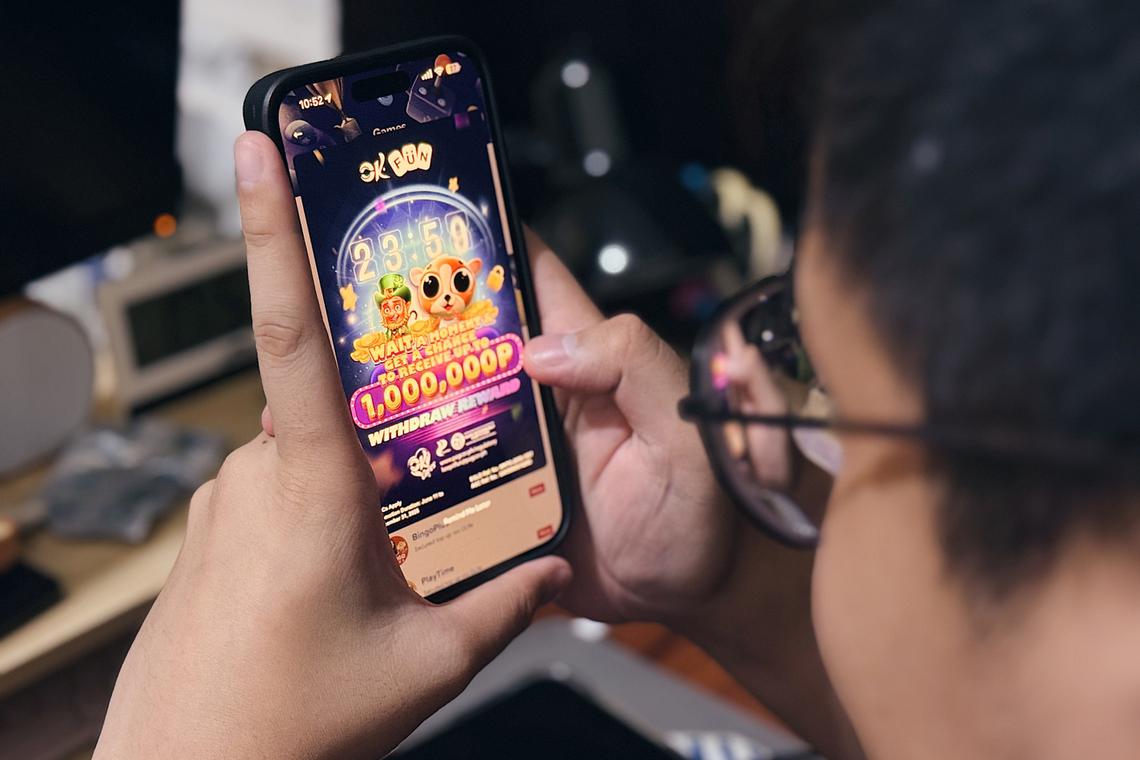Philippine Church against the state-sponsored 'scourge' of gambling
Cardinal David, Bishop of Kalookan, issued a warning against online gambling. According to the prelate, the government plays a "central role" in feeding the addiction, especially among the country's poor and vulnerable. New technologies are turning "homes into private gambling dens" and allowing “addiction to flourish unchecked.”
Manila (AsiaNews) – Cardinal Pablo Virgilio David, Bishop of Kalookan, issued a warning after his fellow bishops called for action against gambling, which they call a “scourge”. In it, the prelate points the finger at the government for its crucial role in fuelling the addiction, especially among the country's poor and vulnerable.
In his Sunday Mass homily, the cardinal described the Internet as a "digital highway" where countless Filipinos are victims of new forms of exploitation, not just by scammers and online predators, but also by legal, state-sponsored gambling platforms.
“What is truly painful,” Card David said at Kalookan cathedral, “is when it’s government agencies themselves – like PAGCOR (Philippine Amusement and Gaming Corporation) – that lead the way in making this kind of victimization possible by legalizing online gambling.”
The warning made from the pulpit comes a few days after the Catholic Bishops' Conference of the Philippines (CBCP) published a pastoral letter, warning of the growing threat of online gambling, particularly among the poor and young people.
The cardinal, who chairs the CBCP, stressed that what was once a vice limited to casinos frequented by the wealthy is now accessible 24/7 via smartphones.
New technologies, he warns, are turning homes into private gambling dens and allowing addiction to flourish unchecked. Online gambling transactions, often disguised as digital wallets, make the problem both widespread and largely invisible.
"Now, the casino is in everyone's pocket," David said. "Even mothers desperate for extra income get drawn in. They start with a few pesos, then risk hundreds or thousands."
The cardinal is not sparing top politicians, including those in government, which licences and promotes digital gambling under the pretext of boosting public revenues. These funds, the cardinal explains, are then often funnelled into politically motivated aid programmes.
“We fail to see the real culprit: a government that grants licenses and expands online gambling platforms… just to earn revenue for public spending – spending that often becomes a tool for political power,” he said.
The cardinal finally addressed the faithful, urging them to resist the normalisation of gambling culture and instead show compassion for those addicted.
“The Word opens our eyes to see the hidden victims on these digital highways,” he said. “It urges us to take concrete steps to help these vulnerable ones whom society often ignores.”
The CBCP had previously expressed its opinion on the issue in a long letter, calling on the government to "declare all forms of online gambling illegal," while describing the issue as "a deep and widespread moral crisis" afflicting the nation.
The prelates also urged the authorities to impose stricter controls on online payment systems to prevent them from serving as easy gateways to platforms.
In its 8 July pastoral letter, the CBCP called on parishes to take a proactive approach in helping individuals and families touched by gambling, framing the issue as a public health problem that requires education, legislation, and treatment.
“To all of you, dear brothers and sisters: Always place the welfare of each person and of the family first. Let us safeguard our relationships,” the bishops said.
Last year, online gambling revenue in the Philippines totalled 154 billion pesos (about US$ 2.7 billion), a 165 per cent increase over 2023.
Gambling is widespread among both young people and adults. About 66 per cent of 18- to 24-year-olds gamble, while 57 per cent of 41- to 55-year-olds regularly access online platforms to gamble, averaging two or three times a week.
Finally, at least 7 in 10 spend around 1,000 pesos a week on online gambling, with 20 per cent gambling up to 3,000 pesos.
08/07/2024 16:40
29/12/2022 14:53







.png)












